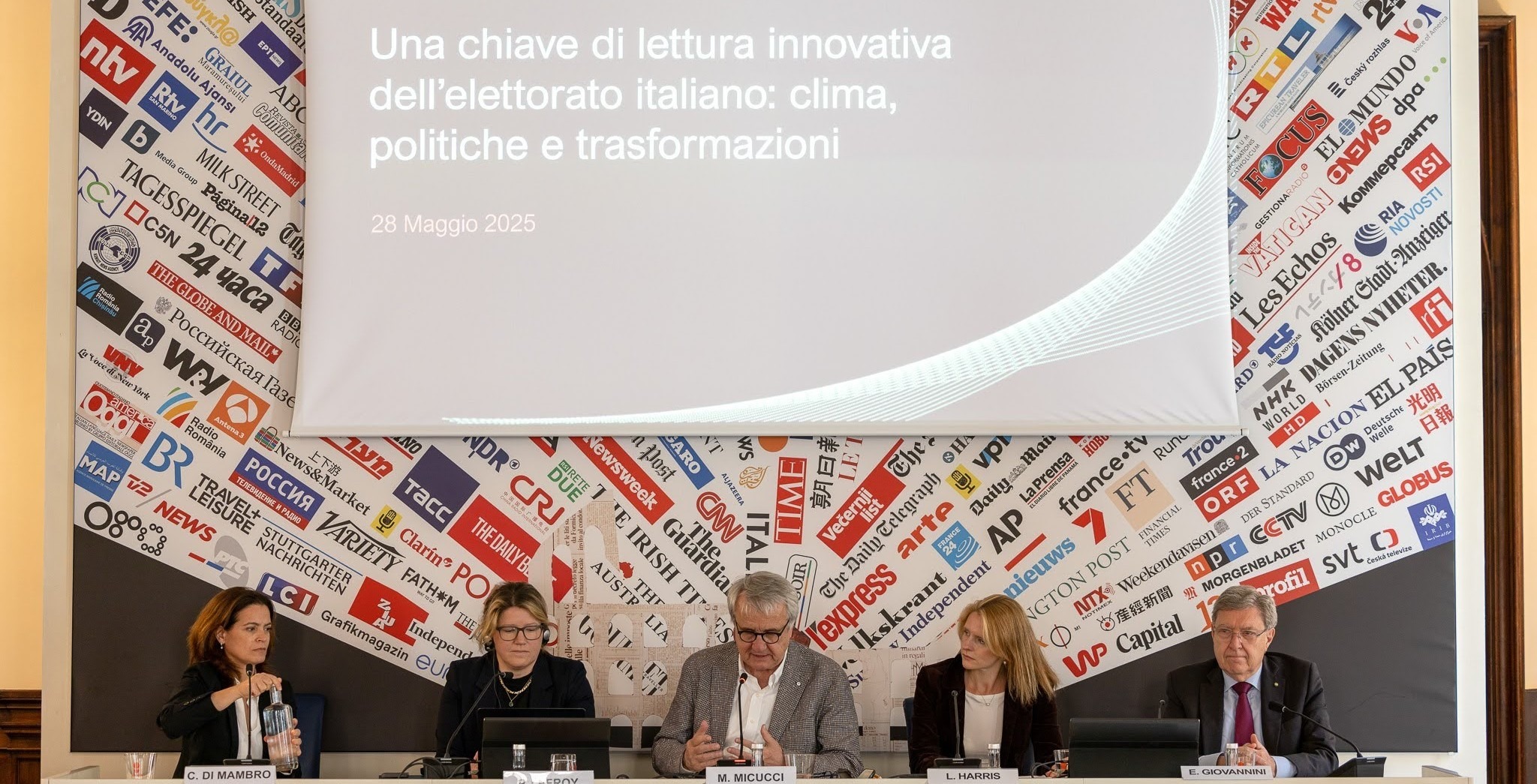Decarbonising the economy to address the climate crisis is a challenge. It requires confronting deep-rooted inequalities and navigating increasingly fragmented political landscapes. Today, climate action is often situated within wider cultural and ideological debates, where public support can be uneven and vulnerable to misrepresentation.
Project Tempo, with ECCO’s support, has developed research to rethink how support for climate policies can grow by engaging with politically influential, yet often disaffected, voter groups. Understanding where resistance originates and how policy acceptability is tied to perceptions of fairness, representation and relevance is essential for building a climate consensus.
These findings were presented at the event “An innovative interpretation of the Italian electorate: climate, politics and transformations”, held in Rome on 28 May 2025.
Europe’s evolving political landscape
The European political context is increasingly characterised by shifting patterns of political engagement. A significant portion of the electorate is disenfranchised and expresses limited confidence in the prevailing economic and political systems, with declining trust in their ability to deliver meaningful outcomes. These dynamics have contributed to a growing interest in alternatives to traditional political approaches.
In Italy, this has influenced recent political outcomes and policy directions. Consequently, we are seeing climate action caught in the crosshairs of this political shift. In some cases, this has included a roll back in green measures, with arguments framed around protecting ordinary people against “ultra-ecological fanaticism”. This is part of a wider trend in which climate action is portrayed as an elite, metropolitan concern, disconnected from the economic pressures faced by ordinary people. This raises important questions about how climate advocates can navigate rising opposition and the polarisation of climate discourse.
What do Italians think about the climate?
Project Tempo has conducted a twelve-month research programme in Italy to develop an in-depth understanding of the swing voters who are making the political weather. Through quantitative and qualitative research involving 6000+ respondents, a “Playbook” was developed bringing together new research, analysis and tools.
This research shows that although Italians overwhelmingly support the principle of climate action and think it can be good for the economy as a whole, only a small minority think it will make them personally better off. This means they are less willing to support climate action if it is presented as involving a cost or trade-off.

To develop broad-based and durable support for action, advocates need to better explain how green policies can solve the everyday problems voters are facing. Fortunately, there are pathways through and the Playbook sets them out.
The Playbook also includes a segmentation of the Italian electorate. This lays out the main voter personas that make up the electorate, their economic perceptions, willingness to support climate initiatives, demographic characteristics, consumer behaviour and preferred media platforms.
It also encompasses an analysis of public attitudes towards key policies across the main emitting sectors, including energy, transport, industry, agriculture and buildings; and sets out principles for policy design which, if followed, will maximise public buy-in.
Mapping regional variations
Finally, the Playbook uses Multilevel Regression and Poststratification (MRP) techniques to provide a region-by-region analysis of voter attitudes. It models voter attitudes towards different forms of energy including solar, onshore wind, offshore wind, gas and nuclear, and compares this to existing capacity, renewables targets, grid connections and “Suitable Area Decrees”. It also includes insights on the practical steps and incentives that would unlock an increase in support for clean energy projects in people’s local areas.

To enhance the application of these insights, Project Tempo has developed an interactive map that allows users to explore the detailed results from their region.
This new research has been presented to policy makers, clean industry representatives and civil society organisations. Project Tempo, together with ECCO, is now looking to apply these findings to a range of critical policy areas, to help uncover effective and widely popular solutions that will help ensure the transition works for everyone.
To find out more, please visit Project Tempo’s Resource Hub where you can access the Playbook and explore the interactive map.






